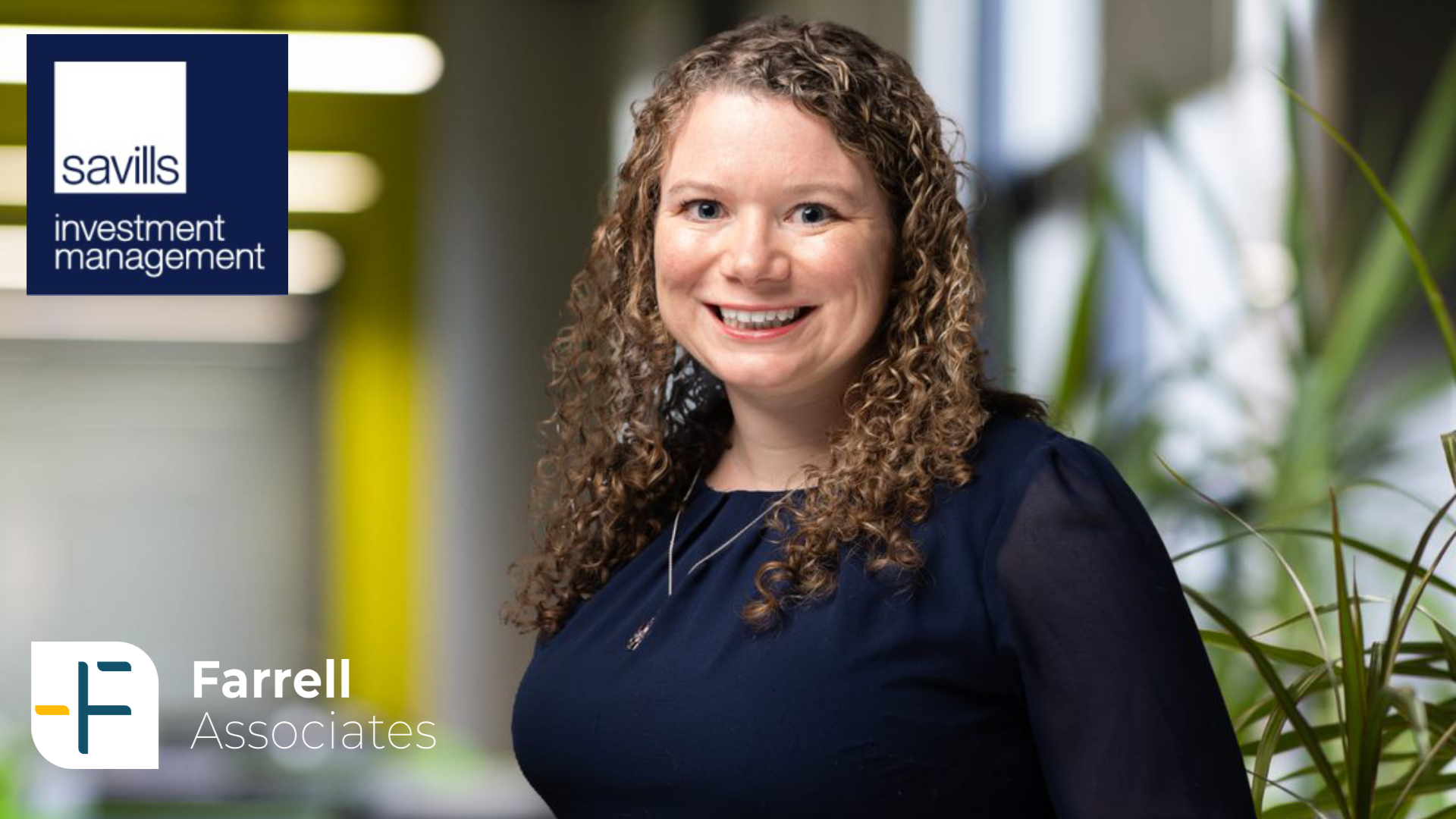People
Investment Real estate insights with Emily Hamilton

In an insightful conversation with an FA’s industry favourite, we had the privilege of sitting down with Emily Hamilton, Head of ESG at Savills Investment Management, which coincided with Women's History month in March. Reflections on gender equality, the evolution of the workplace, and the pressing challenges and triumphs in sustainable finance offered a glimpse into the current state and the ambitious future of ESG initiatives within the real estate sector.
John Gillespie: Emily, as we marked International Women's Day and Women's History month in March, I'm keen to understand your experiences in finance and real estate. Have there been significant strides towards gender equality and diversity in these sectors?
Emily Hamilton: Indeed, John. There's been a noticeable shift.
The focus on gender equality and diversity and inclusion is stronger now than ever.
Our company, among others, is earnestly striving to foster a more inclusive environment and we have committed to publishing D&I data including the percentage of women in senior positions (Associate Director and above) and we have undertaken an internal assessment on our Gender Pay Gap.
Initiatives such as diversity recruitment strategies are becoming commonplace. However, despite the progress, the journey towards genuine equality is far from over. Challenges persist, especially in the realms of senior leadership representation and fair pay.
John Gillespie: That's very insightful. Shifting our focus to sustainability, how is Savills Investment Management embedding ESG principles into its investment strategies?
Emily Hamilton: Sustainability lies at the heart of our operations. We've woven ESG criteria into our investment analysis and decision-making processes. This entails looking beyond traditional financial metrics to also consider the environmental impact, social responsibility, and governance practices of our investments. For example, wherever possible, we're ensuring that we are underwriting buildings to be resilient to the impact of climate change and upgrading existing properties to enhance their energy efficiency. We also engage with stakeholders on sustainability matters such as implementing green leases and champion sustainable practices across our investment portfolio such as exploring opportunities to improve biodiversity on site For example in Poland we have planted 12 acres of wildflower meadows working with our occupiers (tenants).
John Gillespie: It’s impressive to see such a thorough approach. With the growing regulatory emphasis on sustainability, how do you navigate these evolving requirements, and what challenges do you encounter?
Emily Hamilton: The regulatory environment for sustainability is indeed becoming more intricate.
Our strategy is to stay ahead of these developments through proactive engagement with policy makers and industry groups.
We also dedicate resources to training our investment and asset management teams on the latest sustainability regulations and best practices. However, the challenge lies in the disparate regulations across different regions, necessitating a tailored approach. Moreover, the emphasis on compliance can sometimes redirect resources away from other meaningful sustainability endeavours like community engagement.
John Gillespie: Considering the global urgency of climate change, what role does Savills Investment Management envision in fostering a more sustainable future?
Emily Hamilton: We view ourselves as pivotal contributors to working towards a more climate resilient future. Given that the built environment is responsible for c 40% of global carbon emissions, we have a duty to mitigate this impact. Our focus is on reducing the carbon footprint of the assets we manage for our clients portfolio, investing in renewable energy sources, delivering social impact and enhancing biodiversity on our properties. Beyond our own portfolio, we aim to influence the wider industry by disseminating best practices and collaborating on sustainability projects. It's about creating a domino effect that encourages the broader adoption of sustainable practices.
John Gillespie: That's truly commendable. Looking ahead, what trends or evolutions do you foresee in the sphere of ESG and sustainable finance?
Emily Hamilton: The prospects for ESG and sustainable finance are incredibly bright. I foresee several key trends: Firstly, transparency and reporting standards will become stricter, offering more clarity on ESG practices and their impacts. Secondly, there will be more innovation in green finance through sustainable lending practices, including novel financial instruments and investment vehicles centred on sustainability. We are already seeing this in respect to impact capital being easier to access than traditional capital for real estate.
Lastly, the connection between sustainability performance and financial returns will strengthen, as the market increasingly recognises the value of sustainability. These trends will channel more investment towards sustainable ventures, propelling us towards a greener economy.
John Gillespie: Emily, your insights today have been most enlightening. Thank you for sharing your expertise and for your commitment to advancing gender equality and sustainability in the finance and real estate sectors.
Emily Hamilton: Thank you, John. It's been a pleasure discussing these crucial topics with you.
The path towards gender equality and sustainability is a collective endeavour, and I'm optimistic about the progress we can achieve together.



